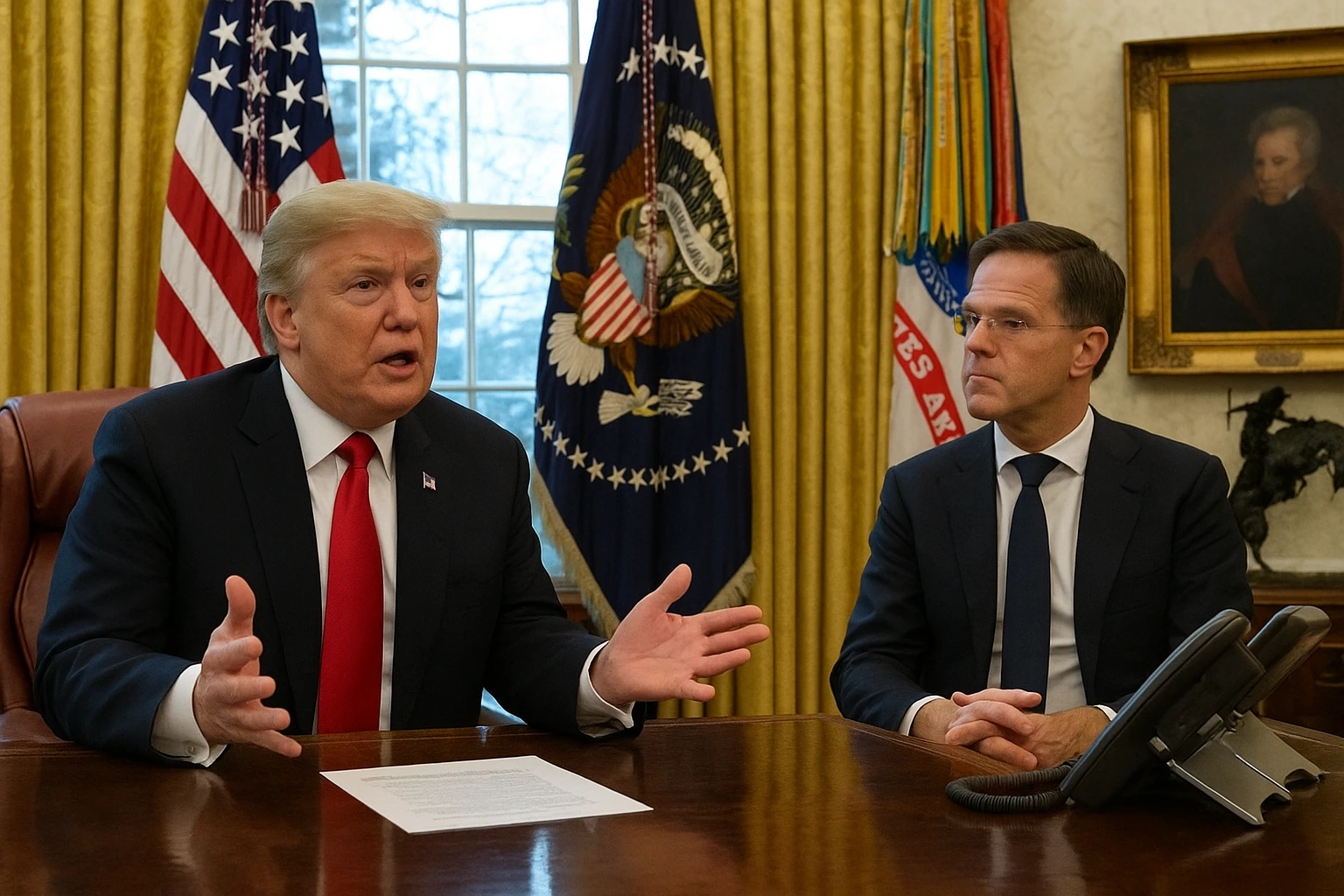WASHINGTON (TECHY QUANTUM) — President Donald Trump on Wednesday announced sweeping new sanctions on Russia’s two largest oil companies, Rosneft and Lukoil, marking the first major punitive action of his second term and a notable shift in tone toward Moscow.
The move underscores what officials described as mounting frustration between Trump and Russian President Vladimir Putin after diplomatic efforts, including a planned meeting in Budapest, fell apart.
The announcement coincided with a meeting between Trump and NATO Secretary General Mark Rutte at the White House, as European leaders urged Washington to remain firmly aligned with Ukraine.
“These are tremendous sanctions,” Trump said from the Oval Office. “They’re very big against their two main oil companies and we hope they won’t have to last long. We want to see peace and a cease fire soon.”
The sanctions represent one of the most significant US measures against the Russian energy sector since the war in Ukraine began.
While the Biden administration previously avoided sanctioning major oil firms to allow allies to continue purchasing Russian crude, Trump’s decision signals a departure from that restraint.
Treasury Secretary Scott Bessent described Rosneft and Lukoil as “twin engines of the Kremlin’s war machine” in announcing the sanctions. “Now is the time to stop the killing and for an immediate cease fire,” Bessent said.
The decision followed months of uneasy diplomacy between Trump and Putin. According to senior administration officials, Trump grew increasingly frustrated after multiple failed attempts to broker a cease fire.
“Every time I speak with Vladimir, I have good conversations, and then they don’t go anywhere,” Trump said. The European Union and NATO have struggled to keep Trump aligned with their strategy on Ukraine.
Trump’s unpredictable stance has left allies uncertain, as he oscillates between pressing for a negotiated peace and threatening punitive measures against Moscow.
Analysts and foreign policy experts said the sanctions could have far reaching economic and geopolitical effects, depending on how strictly they are enforced.
“These sanctions are a big step, but their effectiveness will depend on enforcement and whether secondary sanctions are introduced,” said Daniel Tannebaum, a partner at the consulting firm Oliver Wyman and a fellow at the Atlantic Council.
“Without pressure on third countries doing business with Russia, the impact could be limited.” Secondary sanctions could penalize nations or companies that continue financial dealings with Russia’s energy firms a move that might strain US relations with countries like India and Turkey, which have maintained trade ties with Moscow.
Dr. Elena Morozova, an energy economist at Georgetown University, said targeting Rosneft and Lukoil directly “marks a sharp escalation in Washington’s posture.” She added, “This will hit Russia’s oil revenue stream, but it could also raise global prices in the short term.”
Before the new measures, Russia exported roughly 7.5 million barrels of oil and refined products daily, according to the International Energy Agency. Rosneft and Lukoil account for nearly half of that output.
By comparison, previous US sanctions had targeted Russian banks, defense firms, and technology suppliers but avoided direct strikes on oil majors due to concerns over market disruption.
Analysts at the Brookings Institution estimated that a full cutoff of Rosneft’s exports could reduce Russian oil revenue by as much as 20 percent annually.
The ruble slipped slightly against the dollar following the announcement, while crude oil prices ticked up nearly 3 percent on global markets.
In Kyiv, Ukrainian officials cautiously welcomed the sanctions but expressed skepticism about their durability.
“We have seen shifts before, but if these sanctions hold and are enforced, it could finally cut into the Kremlin’s capacity to fund the war,” said Oleksandr Kovalenko, a senior adviser in Ukraine’s defense ministry.
In Moscow, Kremlin spokesman Dmitry Peskov condemned the sanctions as “illegal economic warfare” and warned of “reciprocal actions” against American businesses operating in Russia.
Ordinary citizens in Eastern Europe voiced mixed feelings. “It’s about time Washington stood firm,” said Anna Horvath, a policy researcher in Budapest. “But if this drives up fuel prices here, people will start questioning whether it’s worth it.”
Meanwhile, in Berlin, energy analyst Markus Vogel noted that European leaders have grown weary of what he described as “the Trump cycle” alternating between alignment and sudden reversals. “They’ve learned they need to keep engaging him constantly,” Vogel said. “Otherwise, Putin fills the void.”
Officials familiar with internal discussions said the administration is preparing to monitor compliance closely and may impose further measures if Moscow attempts to evade restrictions.
The White House also indicated that Trump remains open to direct talks with Putin but only “if real progress can be made toward peace.”
“Trump’s frustration stems from a sense that Putin is playing for time,” said Sarah Whitmore, a senior fellow at the Center for Strategic and International Studies. “These sanctions are both a message and a test can Washington and its allies hold the line?”
European leaders are expected to meet in Brussels next week to coordinate responses and explore ways to stabilize oil supplies if Russian exports decline sharply.
The sanctions against Rosneft and Lukoil mark a pivotal moment in the United States’ evolving relationship with Russia under Trump’s second term.
Whether they succeed in pressuring the Kremlin or instead trigger new geopolitical rifts will depend on global cooperation and sustained enforcement.
For now, Trump’s message was clear “We hope this war ends soon,” he said. “But until it does, we will keep the pressure on.”
